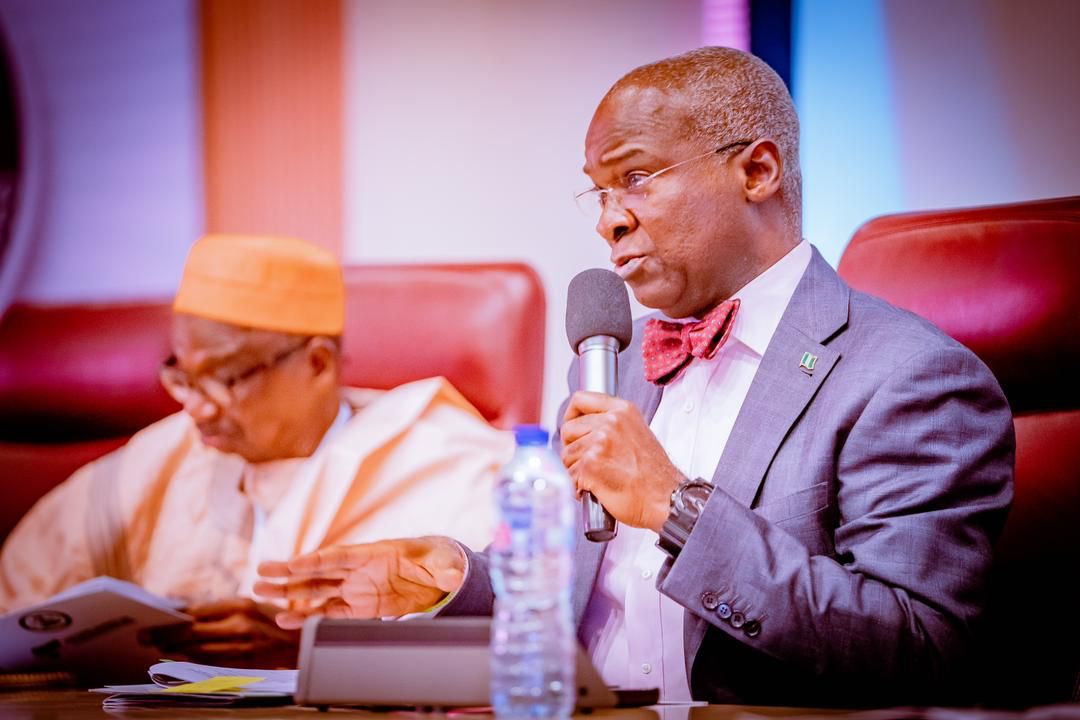On May 17, the Nigerian Communications Commission (NCC) announced the temporary suspension of new licences for three services.
These include mobile virtual network operators (MVNO), interconnect exchange service (IES), and value-added service (VAS) aggregators.
The commission said the suspension, which took effect on May 17, was aimed at ensuring a thorough review of the operators’ market saturation and competition.
Here are a few things to know about the suspension.
Advertisement
NCC’S AUTHORITY AND WHY IT STARTED ISSUING THE LICENCES
The Nigerian Communications Act of 2003 provided broad objectives for setting up the NCC, which principally is to facilitate the provision of communications facilities and access to communications services in Nigeria.
The Act further enumerates functions of the commission, including among other things, the issuance of licences to private companies for the provision of telecommunications services.
Advertisement
This also implies that the commission has the power to revoke licences and suspend the issuance of new ones.
FUNCTIONS OF THE SERVICES AND WHY LICENCE ISSUANCE WAS SUSPENDED
The three services carry out different functions. The VAS aggregators serve as the links between VAS operators (VAS content providers) and mobile network operators (MNOs).
The VAS aggregators also play a crucial role in the VAS ecosystem by facilitating seamless connection and streamlining the integration process of VAS operators to MNOs.
Advertisement
These aggregators have the scale to ensure that all VAS operators — the VAS content providers — regardless of size, can easily integrate into the MNOs.
It was observed that there may be more VAS aggregator licensees than may be required. There are currently 49 VAS aggregator licensees in the country, hence the suspension of the issuance of more licences.
More so, there is also a concern of saturation, with not enough market for the aggregators due to “over-supply”. This has led to an increase in several aggregators with difficulties interconnecting with the four MNOs.
The decision by the NCC to halt more licence issuance could also be predicated on the need to review the market dynamics of this subsegment to ensure effective competition. This is because the commission has issued a significant number of licences in this category of service.
Advertisement
For the IES, the licensees are said to contribute to the transiting of voice calls between MNOs. They also provide voice services between MNOs and smaller licensees (e.g., the local exchange operators), and between one local exchange operator and private network links licensee to others.
It is understood that the original goal of introducing this licence category was to encourage interconnection for smaller players and reduce interconnect indebtedness in the telecom sector.
Advertisement
But despite the positive contributions to the interconnectivity of smaller operators by the IES licensees, the issue of interconnect indebtedness has persisted in the industry.
In addition, cases of “SIM boxing” and “call refiling” have also become a major issue impacting the licensees in this subsegment as well as the MNOs that serve as the major terminating points of voice traffic in Nigeria.
Advertisement
There are currently 37 IES licensees transiting traffic mainly to and from four major MNOs in the country, our findings show.
However, it was gleaned that some of the IES licensees also have other licensees to terminate traffic internationally, while some are suspected of abusing this for SIM boxing and call masking to terminate international traffic as local calls.
Advertisement
This could be another factor that compelled the NCC to stop issuing licences in this service category, as this act takes away revenue that should ordinarily accrue to the operators.
THE MVNOs
In 2023, the commission started the issuance of licences to MVNOs in the country.
An MVNO is a company that does not own a mobile spectrum licence but sells mobile services under its brand name using the network of a licensed mobile operator.
So far, about 43 MVNOs have been granted licences with the objective to deepen competition in the marketplace, expand coverage to rural areas, and increase market efficiency for different market niche segments.
With the suspension of the issuance of this licence category, the NCC plans to assess the market to see how it evolves and performs.
DOES THE SUSPECTION THREATEN THE GROWTH OF THE TELECOMS INDUSTRY?
As mentioned earlier, NCC is worried about saturation and the consequent impact on efficiency. So, due to the already existing licences, the suspension has little to no effect on the telecommunications industry.
Instead, it allows the NCC to review the industry and tackle competition issues to reposition the licensees for better service delivery. This aligns with the agency’s commitment to ensure they can compete and provide better services to the industry.
QUESTION ON HOW LONG THE SUSPENSION WOULD LAST AND IF IT WAS BASED ON INDUSTRY CHALLENGES
At the moment, it is unknown when the suspension will be lifted. However, the length of the suspension would depend on the conclusion of a review that would be done in consultation with industry stakeholders.
On whether the suspension was a result of general challenges in the industry, this is unlike so because the NCC had said the temporary suspension was to facilitate a review of the market to ensure the sustainability of the various players within the various segments.
Essentially, the move was geared towards the enhancement of the industry’s vibrancy.
SHOULD INVESTORS WORRY?
If we consider the commission’s position that the suspension was merely part of efforts to improve the sector, then investors and Nigerians should have no cause to worry.
The suspension of these licences should be seen from the perspective that it is meant to improve the sustainability of the various subsegments in which these licensees operate.
Add a comment







